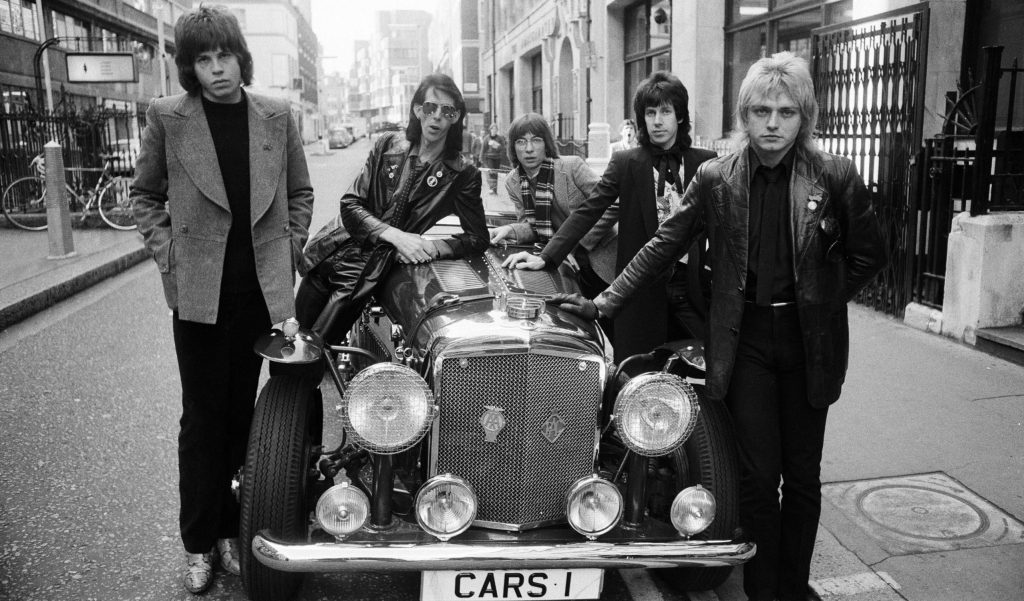
Either through the injustice of longevity or dumb luck, The Cars are widely regarded as the band that put the late singer/songwriter/producer Ric Ocasek on the map. True fans will tell you, of course, that The Cars’ success depended on all members working like a well-oiled new wave machine – and sometimes Ocasek gave the spotlight.
Orr’s soft voice and angular features were a nice contrast to Ocasek’s Buddy Holly-inspired vocals and sultry framing. (“When the band first started,” Ocasek joked during his 2018 Rock and Roll Hall of Fame induction, “Ben should have been the lead singer, and I should have been the pretty boy in the band.”) And it is very just to say the band wouldn’t have been as successful without Orr, who sang the band’s first and biggest pop hit.
Although Orr died of a battle with pancreatic cancer in 2000, his work with The Cars—and these key songs on every album he recorded with the band—will live on forever.
“Just What I Needed” (1978):
Ocasek provided the framework for The Cars’ entire discography, but what fueled the band’s debut single—besides Elliot Easton’s guitar blasts and Greg Hawkes’ synthesizer vocals— was Orr’s voice, so perfect as power pop. It didn’t take long for audiences to board, and both the single and the band’s self-titled debut album made it to the US Top 40.
“Let’s Go” (1979):
You could never accuse The Cars of doing the same thing twice, but “Let’s Go” – Candy-O’s debut single – took everything people loved about “Just What I Needed” and called it. Backups, from Hawkes’ swirling keyboards to the thick, Orr-driven vocals of the chorus. (And who could forget that tap-clap beat at the end of the song’s chorus!) Celebrated with this track, The Cars welcomed the group back with open arms, earning them another Top 20 hit.
“Don’t Tell Me No” (1980): It’s hard to call a Cars album “underrated”, but the third Panorama album is largely in the classic era and “only” went platinum shortly after its release. The Orr-led album single “Don’t Tell Me No” featured dark, beefy guitar work and some seriously sick fills from drummer David Robinson, but the modest performance of lead single “Touch and Go” meant this didn’t it wasn’t even a hit on the charts!
“Think It Over” (1981):
Another song overshadowed by the title track of fourth album Shake It Up, “Think It Over” didn’t even get a single release in the US. But the song’s hippie beat – shimmering organ-like keyboards and a rousing guitar line in the chorus – would have made more sense for European dance floors anyway.
“Drive” (1984):
Ah, but you can’t ignore this immortal slow dance track. Fifth album Heartbeat City saw the band parting ways with producer Roy Thomas Baker and wanting to produce themselves with the help of rock hookmaster Robert John ‘Mutt’ Lange – but none of Lange’s collaborators could have delivered ‘Drive’ with the same vigor . And Ocasek wisely handed over the vocal duties to Orr, whose wish for the end of the universe propelled the song to become the band’s biggest single of all time at No. 3 on the Billboard Hot 100.
“Everything You Say” (1987):
With Orr singing “Coming Up You”, the last single from the Cars’ strange (but temporary) Swan Song Door to Door, its real highlight would be the album’s darling . “Everything You Say” is a mix of melancholic and loving feelings and bases, a live studio arrangement.







